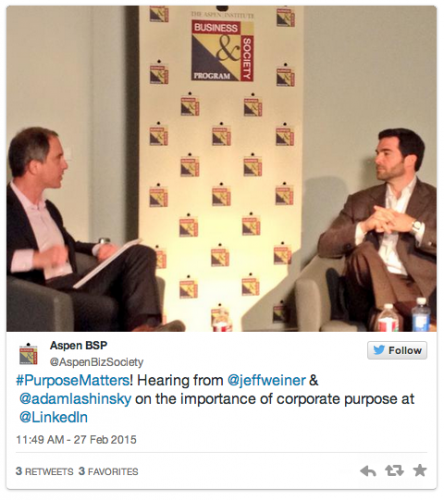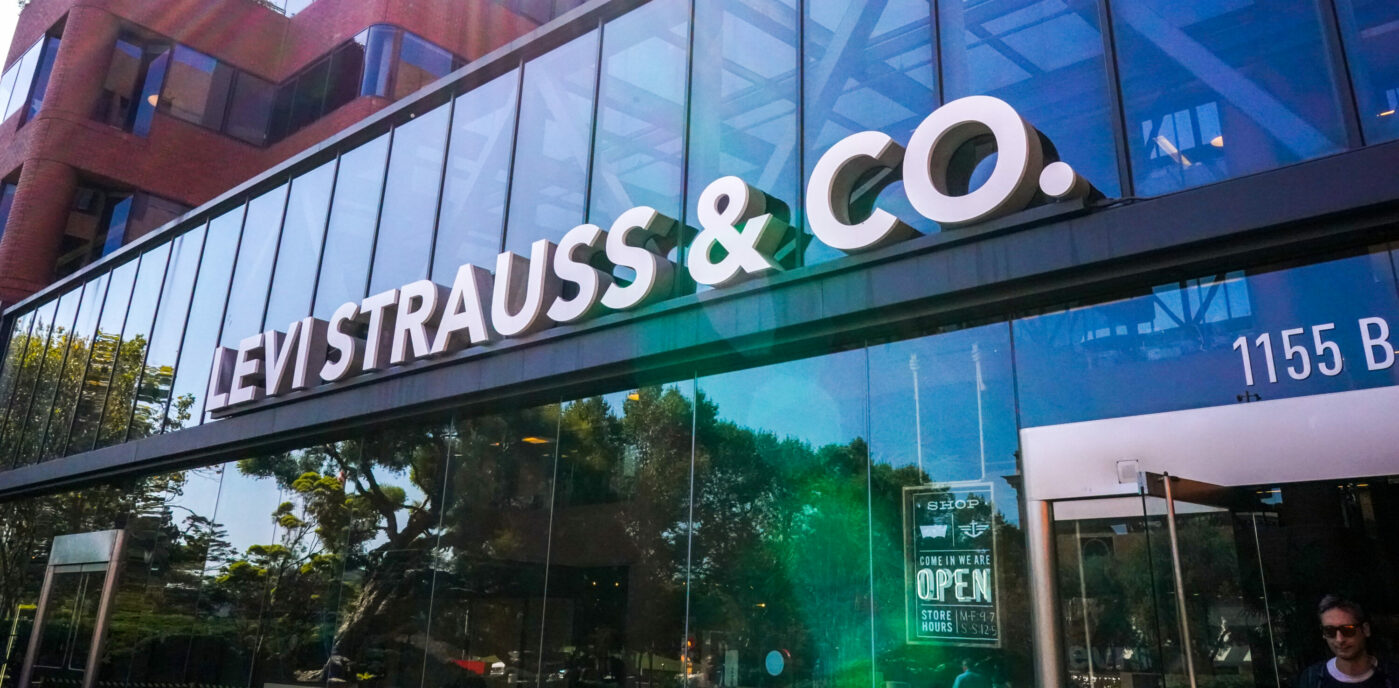Last week, LS&Co. hosted a meeting of the Aspen Institute Business & Society Program to explore how companies might better operationalize their purpose in the 21st century economy.
The two-day gathering mixed dialogue, field trips to see purpose in action and workshops with the goal of growing the toolkit for aligning the company’s core operations and its purpose, amplifying the connections between purpose, innovation and performance, and inspiring new approaches for placing purpose at the center of corporate strategy and communications.
One of the highlights of the event was a session with Jeff Weiner, CEO of LinkedIn, who was interviewed by Adam Lashinsky, senior editor at large at Fortune on purpose in corporations.
Here are three lessons we learned from the conversation:
Lesson #1: Establish a narrative
Weiner feels corporations interested in doing good must establish a narrative that revolves around purpose. He believes this can be accomplished by defining a mission, vision, values, objectives, strategies, priorities and culture that are all aligned with the impact the company wants to have on the world.
Lesson #2: Say it again, and again
“Once that narrative has been established, it has to be reinforced at every turn, authentically believed and held and constantly manifested,“ Weiner shared. He thinks purpose must be truly believed by leaders — they can’t just talk the talk, rather their actions must underpin their belief in the company’s vision and values. The only way to truly weave the corporate narrative into the fabric of the company is by telling and re-telling it — during recruiting, on boarding, development and performance evaluations — to get everyone aligned.
#3: Stick together and stick to it
An old friend of Weiner’s once shared with him a simple equation: trust equals consistency over time. “There’s no substitute for either of those things,” Weiner said. Unfortunately, there are companies out there that don’t always do the right thing. “Any time you have a company that’s eroding trust — with shareholders, the press or the general consumer — it creates inconsistencies,” he said. Those inconsistencies make it even harder for companies trying to do good. He feels the onus is on companies who are trying to do the right thing to stick to it and not be dissuaded by skepticism. “You have to band together with others who believe in what you’re trying to accomplish and pick each other up and keep going.”








